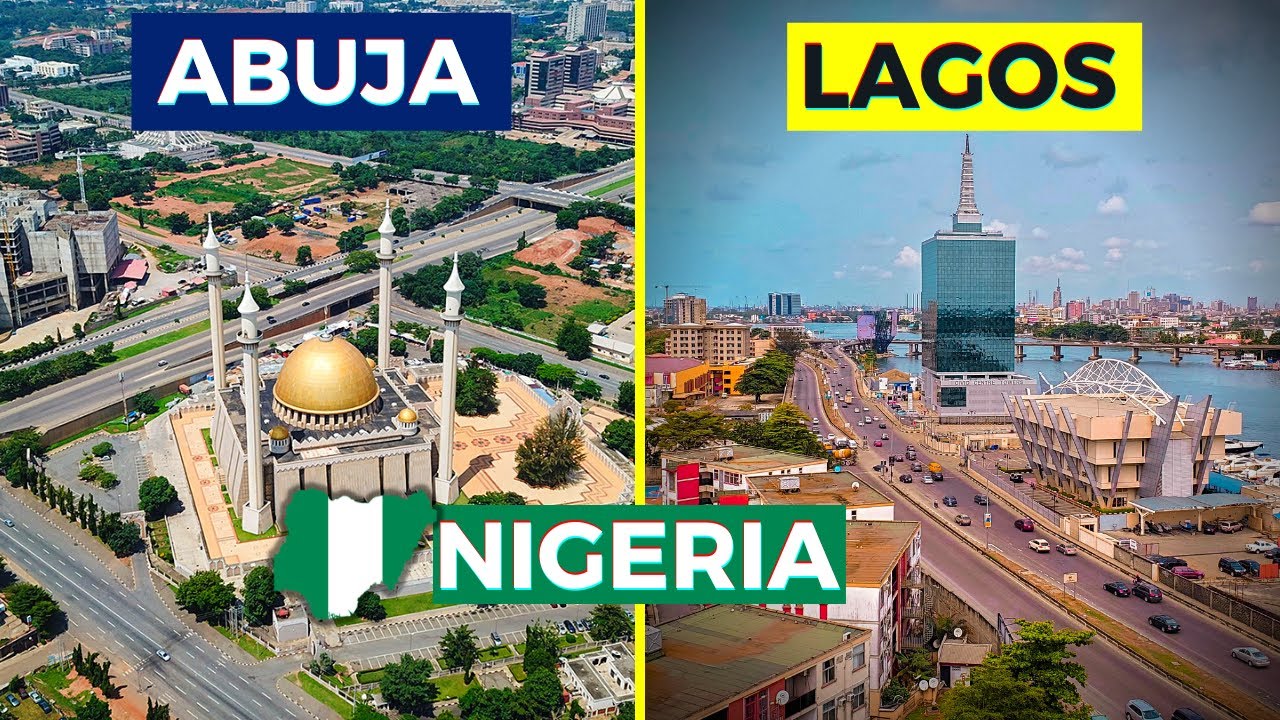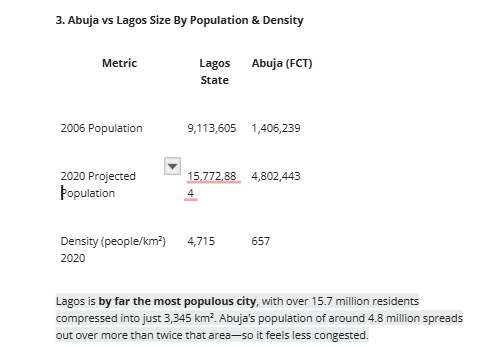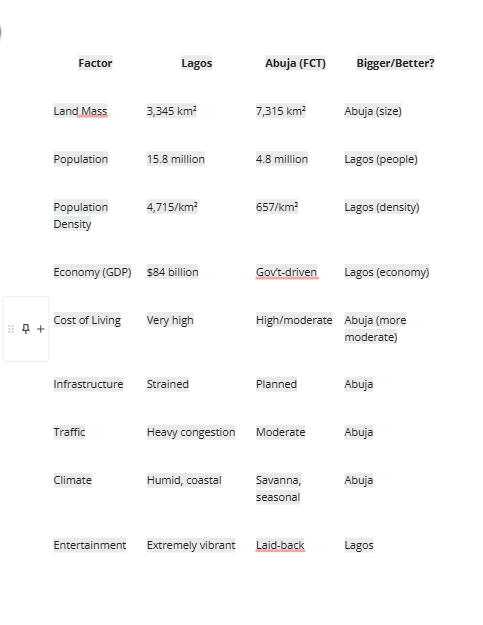



Where are you going?
Dates
2025/10/30 - 2025/10/31
Abuja vs Lagos: Which Is Bigger? A Personal Take

Yes, I’ve spent years navigating Nigeria’s two most talked-about cities: Abuja, where I now live, and Lagos, where I have been doing online research about. And every time I meet someone asking, between Abuja and Lagos, which is bigger? I tell them that the truth depends on how they define “bigger.” So, in this article, I was able to come up with some facts, and I will break it down across ten essential metrics — so you can decide which city suits you best.
1. Abuja vs Lagos Relevance Base on Status & Location
Lagos sits on Nigeria’s southwestern coast, bounded by the Bight of Benin to the south and sharing a 10 km border with Benin to the west. It was Nigeria’s capital until 1991 and remains the country’s bustling economic powerhouse.
Abuja, in the North Central zone, was purposely built in 1976 from parts of old Kaduna, Kwara, Niger, and Plateau States. It officially became the capital in 1991, chosen for its central location and neutral ground among Nigeria’s many ethnic groups.
2. Abuja vs Lagos Size Base on Land Mass
Abuja (FCT): 7,315 km²
Lagos State: 3,345 km²
Despite Lagos’s reputation for sprawling urban development, Abuja covers more than double the land area—making it Nigeria’s largest federal territory by size but not by population.
3. Abuja vs Lagos Size By Population & Density
Metric

Lagos is by far the most populous city, with over 15.7 million residents compressed into just 3,345 km². Abuja’s population of around 4.8 million spreads out over more than twice that area—so it feels less congested.
4. Economy & Opportunity
Lagos contributes roughly 30% of Nigeria’s GDP (about $84 billion). It is home to Nigeria’s busiest ports, financial districts, tech hubs, and Nollywood studios.
Abuja is centered on government, diplomacy, and administration, with numerous embassies, federal ministries, and NGOs. Economic activity is slower and tied to civil service and supporting industries.
The winner here based on Economy is Lagos: If you’re chasing business, startups, or trade, Lagos is hard to beat.
5. Abuja vs Lagos Base on Cost of Living
In Lagos, for instance, one-bedroom rents in Ikoyi or Victoria Island can exceed ₦3 million/year. Commodities, dining, and transportation all skew pricey in these neighborhoods.
In Abuja, high-brow areas (Maitama, Asokoro) still command premium rents (₦2–₦4 million/year), but on average living costs—utilities, groceries, even mid-range housing—tend to be more moderate than in Lagos.
The winner based on affordability is Abuja. Though both cities have expensive pockets.
6. Infrastructure & Urban Design
Lagos: Rapid growth has outpaced road expansion, leading to chronic traffic jams, flooding, and inconsistent power.
Abuja: Planned grid of wide roads, decent drainage, and newer power and water systems—though it still faces its own share of outages and occasional flooding in low-lying districts.
Winner (Planning): Abuja—the calm after the storm of Lagos’s frenetic pace.
7. Traffic & Transportation
In Lagos, the average commute times often exceed two hours on a one-way route, while during peak hour, gridlock is legendary.
In Abuja. Rush-hour traffic exists, but due to the spacious road network, the average commutes are kept under an hour 80% of the time.
The winner base on commute is Abuja.
8. Climate & Environment
Lagos has a tropical coastal climate—high humidity, heavy rains (April–October), and flooding risks.
Abuja has a tropical savanna climate—distinct wet (April–October) and dry (November–March) seasons, with cooler evenings and lower humidity.
The Winner based on comfort of climate is Abuja.
9. Entertainment & Social Life
Lagos has more nightclubs, concerts, beaches (Elegushi, Tarkwa Bay), art galleries, street food markets—you name it. It’s Africa’s entertainment capital.
Abuja has quieter nightlife, but notable spots include rooftop bars in Wuse, live music in Gwarimpa, and tranquil nature escapes at Millennium Park.
The winner based on vibrancy is Lagos. However, Abuja delivers on relaxed weekends and family-friendly hangouts too.
10. Security & Livability
In Lagos, most neighborhoods require caution after dark; petty theft and armed robbery occur, but many districts (Ikoyi, Lekki) are well‑policed.
In Abuja, there are heavy security presence around government areas, generally lower petty‑crime rates, though kidnappings on highway routes can be a concern too.
The winner based on sense of safety is Abuja, especially within central districts.
Summary Table

My Final Thoughts
If “bigger” means land area or ease of daily life—Abuja wins hands down.
If “bigger” means population, economic opportunity, and non-stop energy—Lagos takes the crown.
Personally, having grown up feeling Lagos’s pulse and now savoring Abuja’s calm, I find value in both: Lagos for its opportunity and hustle and Abuja for its space and serenity. Your choice depends on what you value most—time, cost, comfort, or excitement. Either way, you can’t go wrong exploring Nigeria’s dynamic duo of cities.